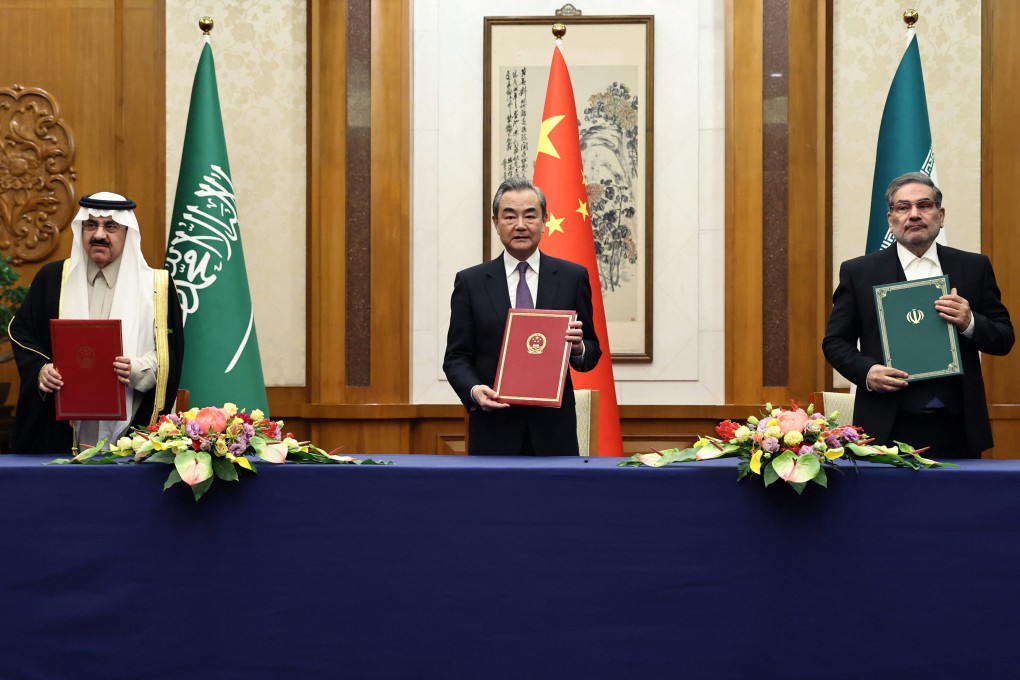Advertisement
Opinion | China the peace broker will find Ukraine war a far bigger test than the Saudi-Iran stand-off
- Beijing’s role in getting the two Middle Eastern rivals to resume formal ties is a sign of its growing diplomatic heft and raises expectations of its ambitions to be an international mediator
- To realise its peace plan for Ukraine, however, China will have to overcome many more obstacles – including bringing the US and EU on board
Reading Time:3 minutes
Why you can trust SCMP
21

China scored a great diplomatic point by brokering a surprising agreement between Saudi Arabia and Iran to restore formal ties after seven years. It signals that the Chinese are cutting their teeth for more ambitious endeavours, such as a concrete initiative to resolve Russia’s war against Ukraine.
Some view Beijing’s recent 12-point peace plan for the crisis as lacking substance, but Friday’s deal adds weight to China’s Global Security Initiative, a recently published document that lays out how it intends to manage world crises.
But while the Chinese government is getting a lot of applause for its role in facilitating a thawing of relations between Saudi Arabia and Iran, the hard part comes now. The entente will take two months to be fully implemented, a long time frame for tricky Middle Eastern politics.
Traps are everywhere in the region. Iran is advancing its nuclear programme after two years of failed attempts by the Biden administration to revive a 2015 agreement that aimed to prevent the Islamic Republic from producing a nuclear bomb. The civil war in Yemen, in essence a proxy war between Saudi Arabia and Iran, remains unsolved. The same goes for the Syrian civil war and Lebanon’s never-ending political crisis, where Riyadh and Tehran are on opposing fronts.
Then there’s the Israel variable. The Jewish state and Iran are arch-rivals, and the Israeli government will inevitably watch with concern China’s diplomatic manoeuvring with the Iranians and Saudis. Israel is a significant trading partner for China, and a potential source of technology, at a time when the US is successfully preventing the Chinese from acquiring much-needed tech solutions from Western countries.
While China’s growth has slowed under President Xi Jinping, the country has made inroads on the global stage. But if the Chinese-mediated detente between Iran and Saudi Arabia does not hold, Beijing will suffer a diplomatic loss of face as Xi is trying to dismantle the US-led world order born out of the Soviet Union’s collapse in 1991.
Advertisement
Select Voice
Choose your listening speed
Get through articles 2-3x faster
1.1x
220 WPM
Slow
Normal
Fast
1.1x
